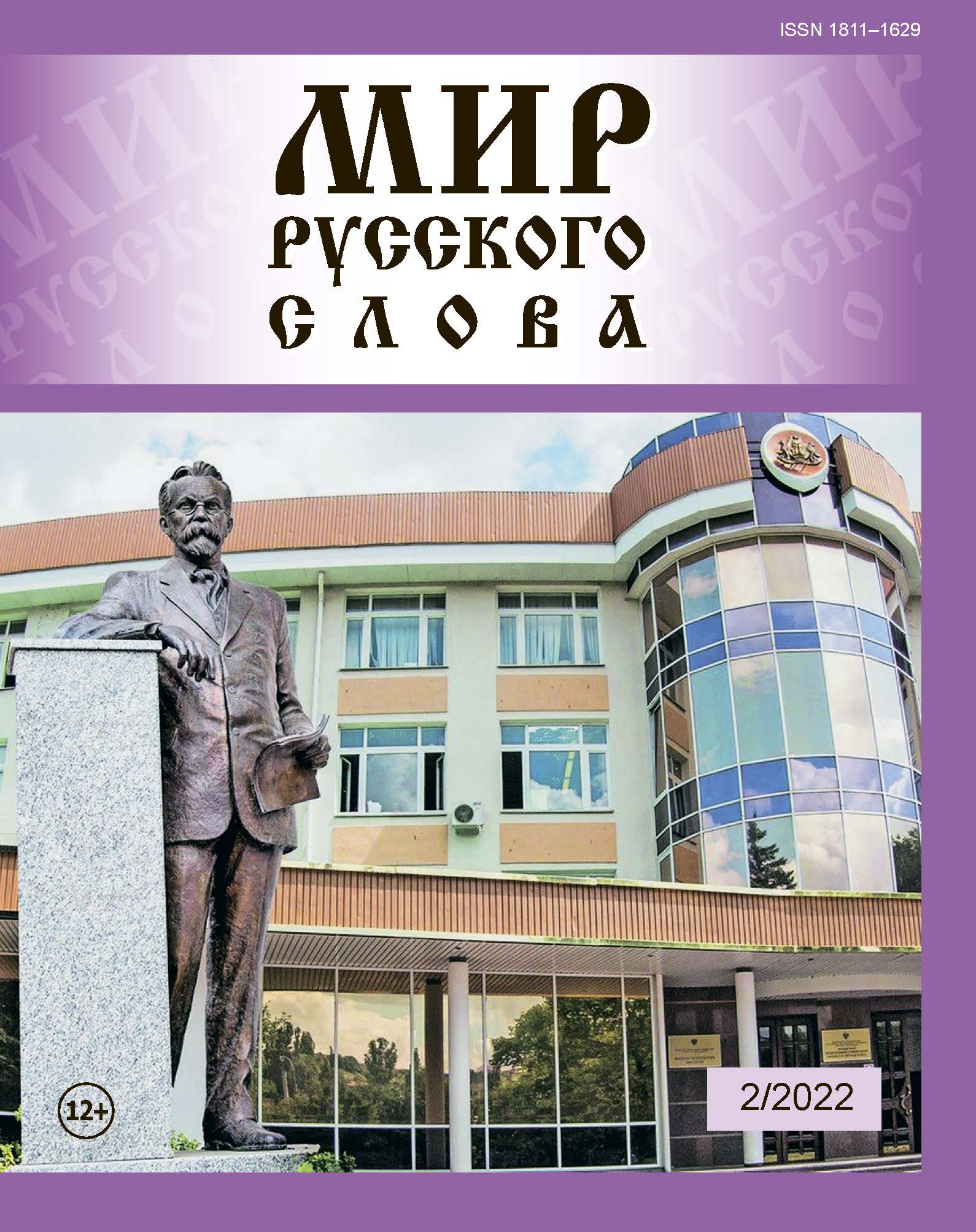Critical professional media discourse: Ways of evaluative conteptualization of modern prose works
DOI:
https://doi.org/10.24412/1811-1629-2022-2-52-61Abstract
The article is devoted to the identifi cation of pragmastilistic ways of evaluative conceptualization of Russian-language modern prose works in the media texts of the section “Criticism” in the online literary-critical journal “Literatura”. The discourse analysis of critical articles, in which the evaluation of literary novelties of prose genres is represented, on the material of the texts of the issues for 2019-2021, the author reveals signs of strengthening of the author’s subjectivity and the dominance of the personal-evaluative attitude to the material. Along with these features, the traditional style of articles and reviews is still relevant, which is characterized by standard nominations of the terminological field of literary criticism and rational grounds for developing an assessment. Pragmastilistic analysis of texts has revealed, on the one hand, the signs of intellectualization of speech media sphere, and, on the other hand, facts of colloquial speech. Intellectualization manifests itself in creating a vertical context, metaphorization and periphrasing. The evaluative means of language have an implicit character of conveying the critic’s attitude to the interpreted work. The main elements of colloquial speech in the studied media discourse are recognized as professional jargon and means of ironic evaluation. Th e main trends in the development of the language of professional critical discourse in the media space are the interpenetration of discourses (scientific, artistic and colloquial) and the widespread dissemination of the facts of emotional and evaluative subjectivation of critical media style. The author demonstates the dependence of the choice of pragmastilistic ways of representing the assessment on the position of the interpreter, either “analyst”, or “reader”. The leading pragmatic component of modern literary criticism in media discourse, which can be considered an innovation associated with the influence of blog discourse, is the refl ection of the emotional state of the author of the text, evaluating prose from the standpoint of a pronounced author's "I", with frank subjectivism in evaluative interpretations of the subject of speech. The degree of subjectivization of professional critical discourse is determined by the discursive practice preferred by the critic, in which intentions are oft en manifested to demonstrate their creative potential as a person who “independently” evaluates the work.
Keywords:
critical media discourse, conceptualization of prose, evaluation, pragmaesthetic approach, subject of discourse
Downloads
Downloads
Published
How to Cite
Issue
Section
License
Articles of "The World of Russian Word" are open access distributed under the terms of the License Agreement with Saint Petersburg State University, which permits to the authors unrestricted distribution and self-archiving free of charge.




